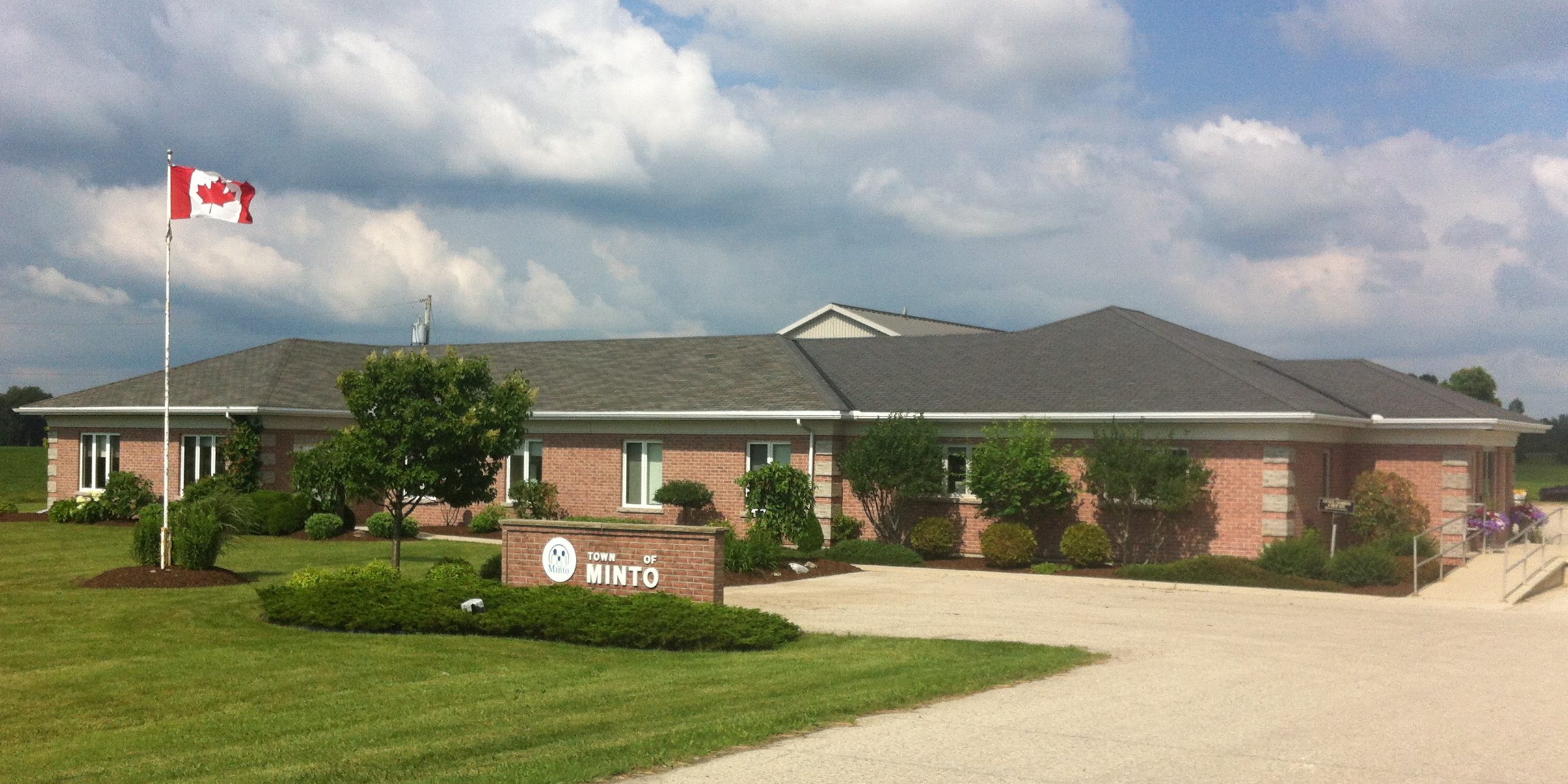MINTO – Town council has approved site specific zoning applications to allow kennels on two properties in rural areas of the municipality.
The separate applications were approved following public meetings held during a special planning meeting of council held on Aug. 13 at the Clifford Community Hall.
The town’s zoning bylaw prohibits kennels in all zones unless specifically permitted by an amendment.
The amendments will allow kennels to be operated on a 12th line property owned by Allen Horst and a Road 1North property owned by Laura and Julianne Martin.
Reports from Wellington County junior planner Matthieu Daoust indicated the county has no concerns with either application as the kennels would be located well outside the minimum 150-metre radius of any neighbouring residences.
Prior to the first public meeting, on the Horst application, Mayor George Bridge advised members of the public planning to speak to stay on topic.
“This is a planning and zoning application. We only talk about things that have to do with the actual zoning,” said Bridge.
“So if you’re here and want to discuss kennels in general we can’t allow that. That’s not what this meeting is about.”
Bridge stated neighbours could comment on specific concerns such as potential noise issues from barking dogs.
However, the mayor stated, “If you’re here and just want to talk about the bylaw, we had some great discussion on this bylaw a while back and at this point in time we’re just here about the kennel rezoning.”
Councillor Mark MacKenzie said he opposes both applications because he feels the town is licensing too many kennels.
“There was an attempt recently to amend the current kennel bylaw. That hit a dead end, so this is the last opportunity, by opposing the zoning change, to keep a ceiling on the number of kennels in our town,” MacKenzie stated.
“It would also reduce the dog trafficking and negative impacts that are increasing by this type of kennel. So I won’t be supporting the zoning.”
Chief building official Terry Kuipers stated the number of kennels in town has actually dropped in the past year.
“Last year at this time there was 15 and we’re down to 13 at the moment,” said Kuipers, noting two properties with kennels were sold and the new owners have not applied for kennel licenses.
“And that’s been pretty consistent over the last few years,” commented Bridge.
“The number hasn’t really gone above that, or dropped for that matter,” said Kuipers.
Minto resident Darlene Eschlboeck asked how the town was keeping track of dogs bred at local kennels.
“You guys are going to go out, and the bylaw officer supervises because they see all the records, correct? The breeding records, etc., which is great,” said Darlene Eschlboeck.
“The only problem I have with the zoning changes that you’re going to do is that the dogs in these are not permanently identified so how do you go out and look at records here?”
“That is a question that is a general question that I don’t want to get into tonight. This is a zoning issue. That was about the bylaw,” Bridge interjected.
“Which I asked to speak at and not one of you got back to me,” Eschlboeck responded.
“And I sent a formal complaint and not one of you got back to me.”
In a letter dated June 27, Eschlboeck asked to be allowed to speak at the next council meeting, regarding the number of kennel licenses that council is approving.
Eschlboeck’s letter and five other letters from local residents expressing concern about kennels were included in correspondence for the July 14 meeting.
At that meeting, MacKenzie moved a resolution to reconsider the town’s dog licensing bylaw (which includes kennel provisions).
The resolution was defeated in a 4-3 vote.
“That is not part of today,” Bridge told Eschlboeck.
Echlbeock replied, “Well it should be, when you’re rezoning for a kennel that you’re saying they conform your bylaw, but you really don’t’ have any way to enforce your bylaw.”
“We can have that debate another time, but not today. I think our bylaw can be enforced,” said Bridge.
During discussion on the Martin application, MacKenzie asked, “if it’s common to have a kennel in a dairy barn, in the same space.”
Both the Horst and Martin applications propose locating the kennels in existing barns on the property.
“There’s no standard of what a kennel is, or where it can be,” explained Kuipers.
Councillor Jean Anderson asked if the barns would be heated or insulated.
“I understand this is a zoning bylaw, but there’s no point in having zoning if we’re going to have objections to the kennel down the road,” said Anderson.
“So is it … insulated?” she asked, adding, “Puppies don’t’ survive in an outside environment in the winter time.”
“Yes, we’ve insulated a separate area for them,” said Julianne Martin.
“They’re not together with the dairy cattle.”
“So it’s a separate entity? I’m not accustomed to thinking of dog kennels in barns either,” Anderson commented.
Kuipers pointed out kennel properties are inspected as part of the licensing process.
“Before we issue the licenses we have to check it,” he stated.
“But does it need to be heated? Is that one of the requirements?” asked Anderson.
“It is, yes,” replied Kuipers.
Bylaws for both properties were approved by a 6-1 vote. The votes were recorded at MacKenzie’s request.
Bridge, Anderson, Deputy Mayor Dave Turton and councillors Ron Elliott, Judy Dirksen and Geoff Gunson voted in favour of both bylaws.
MacKenzie opposed both.




